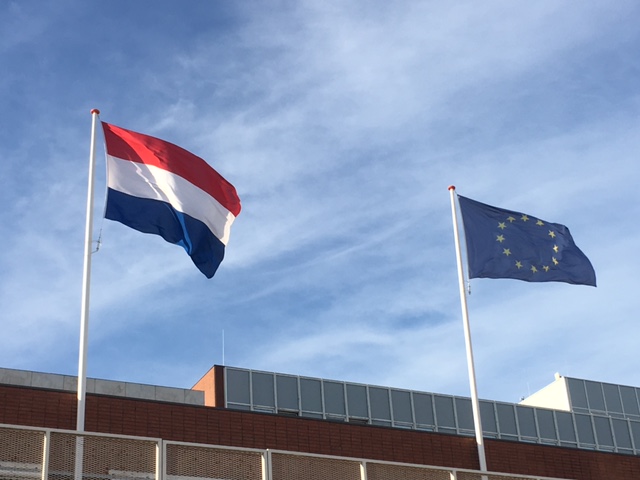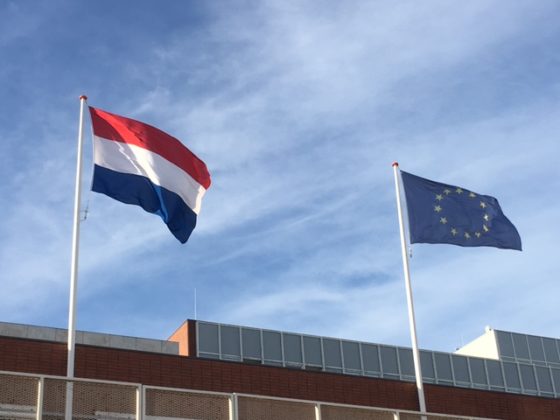Brussels to act on boosting EU residents’ voting rights


EU citizens who live in the Netherlands and are at least 18 years old, as well as non-EU citizens who have lived in the country for at least 5 years, can vote in the local elections of 14, 15 and 16 March. But will they?
During the European elections in 2019, just 12% of 490,000 EU nationals who were eligible to vote in the Netherlands, registered to cast their ballot. It is not a specifically Dutch problem and the low level of participation is seen across the EU.
According to the EU statistical office Eurostat, on 1 January 2020 there were 13.5 million EU citizens living in another EU member state, of whom 12 million were of voting age. Under EU citizenship rules, they have the right to vote and stand as candidates in the local and European parliament elections in the country they live in. But few take advantage of this benefit.
The reasons, says an analysis by the European Commission, are a general lack of awareness about their rights, scarce information about voting procedures, the lack of familiarity with local politics, as well as language problems.
In the 2019 European vote, for instance, people in the Netherlands complained they did not know they had to register and some were given wrong information by their local council.
The Commission has decided to address the problems and in November published planned changes to the EU voting rights directives, hoping to improve the participation rates.
More information and in more languages
The EU directives define electoral rights for people moving across borders and leave it to member states to decide how these are exercised nationally, as long as the principle of non-discrimination is respected.
In some countries, residents’ registration in the electoral roll is automatic. In others it has to be requested.
In the Netherlands, people are not required to register to participate in the local election and at least 14 days before the vote, a polling card (stempas) will be sent to the home address of all those eligible.
But EU citizens are required to register for the election of the European Parliament, because in this case they can choose to vote in their country of origin or in the country of residence, and member states have to avoid multiple voting.
The European Commission plans to simplify the application of this rule in the future with better communication among authorities and standardised templates, but civil rights campaigners say more can be done.
Passive information
Under EU directives, national authorities have to inform EU citizens how to exercise their voting rights. However, most rely on ‘passive information’, such as mentioning voting procedures on their websites.
A study by the European University Institute on the political participation of EU citizens in the Netherlands showed that in the local elections of 2014, 31% of Dutch municipalities provided specific information to non-citizen residents, but the figure was only 8% for municipalities with a population of between 50,000 and 100,000.
Towns and districts mostly used their web pages to inform voters and just 4% provided information in a language other than Dutch.
Ahead of the March municipal elections, voters will receive the list of candidates and the addresses of the polling stations but it is up to the towns and cities themselves what additional effort they make to make sure foreign nationals vote.
Amsterdam, where most foreign residents live, has prepared short animated videos with subtitles in several languages. But there won’t be a specific campaign to encourage non-Dutch nationals to vote. Eindhoven, by contrast, has organised an election meeting and a version of the Stemwijzer voting tool in English.
New rules
This may change in the future. The European Commission has proposed that EU countries designate a national authority to ‘directly and individually communicate’ to EU residents about the conditions under which they can vote, including the status of their registration, how and where to vote, and how to obtain more information about the election.
In addition, the basic information should be provided in at least one other EU official language ‘that is broadly understood by the largest possible number of EU citizens’ in the country. The draft law also says more efforts should be made to inform people with disabilities and the elderly about their right to vote.
The ECIT Foundation, which works on EU citizenship in Brussels, says the proposal could be more ambitious. The group has called for the creation of dedicated help-desks that would ‘proactively’ help voters ‘before, during and after elections’.
ECIT Founder Tony Venables argues this would benefit non-EU citizens who are eligible to vote too. ‘We did ask to set up help-desks in EU countries for the exercise of voting rights and if this is done for EU citizens, why not extending them to all?’ he said.
A problem of data
Another problem across the EU is the lack data on the participation of citizens from other countries, which leaves authorities in the dark about what to do to improve turnout. Surveys have shown that the longer EU citizens have lived in another EU country, the more likely they are to be involved in the electoral process, but statistical information is limited.
The Dutch national statistics office CBS said ahead of the 2019 European elections that 3.6% of the Dutch electorate were other EU citizens – or almost 500,000 people. Nearly one-quarter (24%) of them were Polish, followed by Germans (14%), British, who were EU citizens at that time, Italians and Belgians.
When it comes to the local elections, however, that data is not broken down by nationality although a rough figure can be worked out by subtracting the number of people who can vote in the national elections – Dutch nationals only – from the local electoral roll.
The European Commission wants to improve in this area working with national statistical institutes and electoral authorities to collect more data on participation in both local and European elections
The role of mayor
EU citizens who live in other EU countries can also be candidates in local elections. On top of awareness and paperwork issues, however, the assessment by the European Commission says that ‘equal possibilities to exercise electoral rights are not fully achieved’ as some EU countries still reserve some positions to their own nationals only.
In the Netherlands, the mayor and members of the municipal executive (wethouder – alderman) can only be a Dutch citizen. There are similar restrictions in Austria, Belgium, Cyprus, the Czech Republic, Estonia, France, Germany, Greece, Italy, Poland and Slovenia.
This is not going to change in the future, even though the Commission says such limitations are slowly diminishing. But countries will be requested to report regularly on the application of these measures to assess the need to maintain them.
New rules from 2024
It will take some time before these new measures are enforced. The Commission proposals will have to be approved by the EU Council (formed by representatives of EU governments) after consultation with the European parliament.
The Commission aims to have the new rules in place by 2024, in time for the next European elections.
The article is published in cooperation with Europe Street News, a news outlet about citizens’ rights in the EU and the UK.
Thank you for donating to DutchNews.nl.
We could not provide the Dutch News service, and keep it free of charge, without the generous support of our readers. Your donations allow us to report on issues you tell us matter, and provide you with a summary of the most important Dutch news each day.
Make a donation